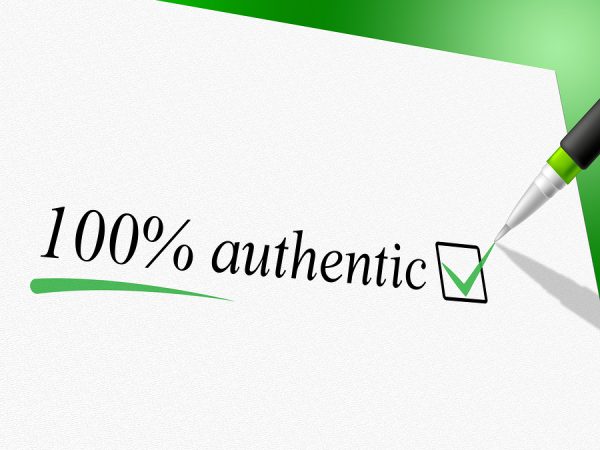The topic of leadership authenticity is popping up with great frequency these days, and I’ve noticed that there are two very different definitions (and criticisms) associated with each. I think it’s time we examined our definitions, and expectations, of leadership authenticity.
In psychology, authenticity is a measurement of walking your talk; that is to say, how closely your actions align with your voiced values, beliefs, wants and needs. The focus is on self, not cultural norms, expectations, values or morals. And this is where it gets complicated: when an individual incorporates external norms as one’s own, is that individual no longer authentic?
Consider this: existential philosophers, like Kierkegaard, Heidegger, and Sartre, believed that authenticity is an individual’s response to being in a material world and encountering external forces and influences which are very different from itself. Psychologist Erich Fromm considered behavior of any kind, even that entirely in accord with societal mores, to be authentic if it results from personal understanding and approval of its drives and origins, rather than merely from conformity with the received wisdom of society. In other words, authenticity is self-awareness. Know thyself, and be thyself.
Leadership Authenticity Impacts Organizations
The most successful leaders I know do this. And it makes sense. Leadership experts like Bill George, a senior fellow at Harvard Business School, have studied how authenticity impacts organizations—and how a lack of it destroys them. Old-school thinking of autocratic, power-based management, which keeps employees controlled and compliant, has failed. Distant, deceptive and insincere leadership repels people, causing multiple dysfunctions. Only legitimate authenticity works.
Unfortunately, many leaders have yet to grasp what authenticity necessitates and consequently fail to implement it. While authenticity’s facets are broad, its general principles are relatively uncomplicated and well worth the effort to learn and practice.
4 Key Attributes of Leadership Authenticity
Branding and leadership expert Anna Crowe outlines four of its key attributes in Get Real: The Power of Genuine Leadership, a Transparent Culture, and an Authentic You (Lioncrest Publishing, 2019):
- Adaptability
- Direct communication
- Putting values into action
- Leading with passion
I’ll dive in to these attributes in this series of posts. In the meantime, what do you think? How do you define leadership authenticity? What are your expectations? You can call me at 561-582-6060, let’s talk. And as always, I can be reached here, or on LinkedIn.

Did You Enjoy This Article?
Join thousands of other smart business owners like yourself & get our Proffittable Times newsletter.
It's filled with actionable content you can apply immediately.
Sign up now to get started!
– Coach Nancy










